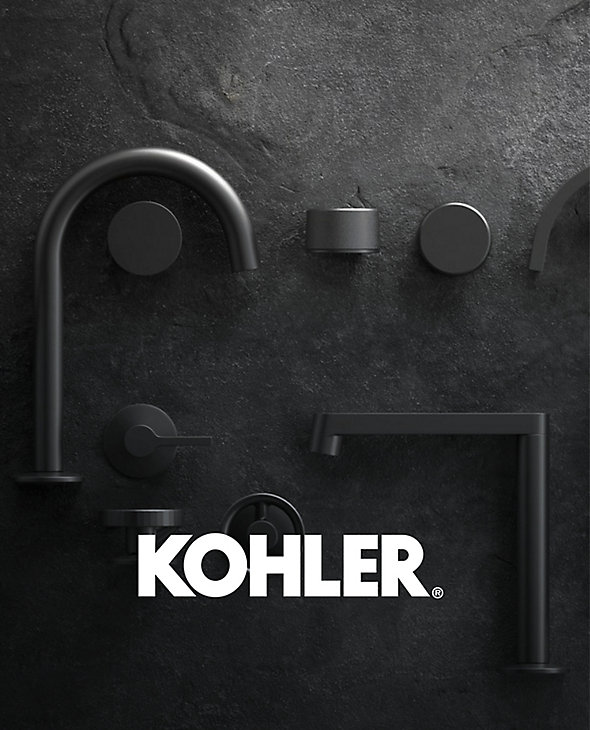Bathroom renovations can be extremely difficult. especially when it comes to selecting the proper fittings, such as the appropriate types of water taps and sanitaryware. The entire process entails determining what is available on the market, whether it is functional and aesthetically pleasing for your home, and whether it fits within your budget.
Faucets have been around since running water was invented, and we've come a long way since then! Nowadays, the sheer variety and types of water taps available on the market are overwhelming, making it difficult to distinguish one from the other, particularly for a layperson. This article will go over the various basin tap types so you can make an informed decision for your home.
Water Taps of Various Types
The following are the five most common types of water taps that are widely available:
1. Single-Handed Taps
Single-lever taps are a type of water tap in which the temperature of the water is controlled by a single lever. In general, turning towards the right side produces progressively hotter water, while turning towards the left produces cold water. Aside from that, the single lever tap allows you to control the water pressure by lifting the lever up, making this faucet design simple to use. You can also leave the lever in your preferred direction if you are used to a certain temperature so that you always have the best temperature available.
Pros: This faucet design is ideal for bathrooms, in particular, because it is simple to use and the washbasin tap installation is simple.
Cons: The only disadvantage of this type of water tap is that it is more expensive than dual-lever faucets. Furthermore, flow changes affect the temperature, which disrupts the consistency.
2. Faucets with a Quarter Turn
Quarter-turn taps work by opening and closing ceramic discs, allowing the tap to flow at full pressure with just a 90-degree turn. They are an excellent choice for people with disabilities, weak grips, arthritis, and the elderly due to their low friction. This water tap design makes use of newer technology and is one of the most advanced manual faucets on the market today.
Ceramic discs in quarter-turn taps are generally more durable and will not need to be replaced as frequently as washers in traditional taps. However, this is also dependent on the hardness and quality of your water. 29-May-2020
Pros: Because ceramic discs are used, these types of water taps are more durable and may not need to be replaced for a long time. Because of its disability-friendly design, it is also an excellent choice for a home with elderly residents.
Cons: Hard water in your home can corrode the ceramic discs, making them less durable over time.
3. Taps the pillar cock
One of the oldest types of water taps used since the advent of indoor plumbing, they are most commonly found in older homes. These faucets have two separate handles for hot and cold water and are powered by a compression stem with a washer at the end that pushes against the valve seat. To restrict the flow of water, the compression is tightened, sealing the valve with a rubber seal.
Pros: Pillar taps have a reversible handle that can be changed to match your home's washbasin design. They are also a less expensive option.
Cons: These taps are more likely to leak and may require frequent maintenance due to the rubber used to control the valve.
4. Pressmatic Tape
Pressmatic faucets, which are commonly found in public places, use a simple mechanism of pressing to release water. When the pressure drops, the water stops flowing immediately. Because the mechanism is simple to use and install, these water tap designs are among the most water-efficient, making them ideal for public spaces and children's bathrooms.
Pros: Installing pressmatic taps in your home is an excellent way to save water and one of the most sustainable basin tap types on the market.
Cons: Because the temperature is prefixed and mixed before the water is released, you cannot change it with these taps. They can also be inconvenient when trying to fill water because they do not allow for a continuous flow of water without pressing the knob.
5. Automatically operated faucets
Finally, the most modern type of faucet—an automatic one! Automatic faucets, which are most commonly seen in commercial spaces, are an excellent solution because they require few repairs and waste little water. This type of faucet operates by opening the valve when the LED sensor detects motion. When the sensor detects no motion for a few seconds, it automatically closes the valve and stops the flow of water. The installation of a sensor tap is also simple, making it a viable option for your home.
The most obvious advantage of these types of water taps is that they are extremely sanitary and waste the least amount of water. Because it is touchless, the metal becomes less stained.
The most significant disadvantage of automatic faucets is that they are more expensive than other types of faucets. The battery must also be replaced, which is an additional expense. You also have no choice between hot and cold water because only a pre-mixed temperature is available.
While durability, function, and cost are all important considerations when selecting the right type of water tap for your home, aesthetics should not be overlooked. If you are unsure, you can schedule a virtual consultation with Hansgrohe's team of experts to determine which one is best for your home. You can also browse our extensive collection of faucets from the comfort of your own home today and locate the nearest Kohler authorized dealer in surat.





Comments